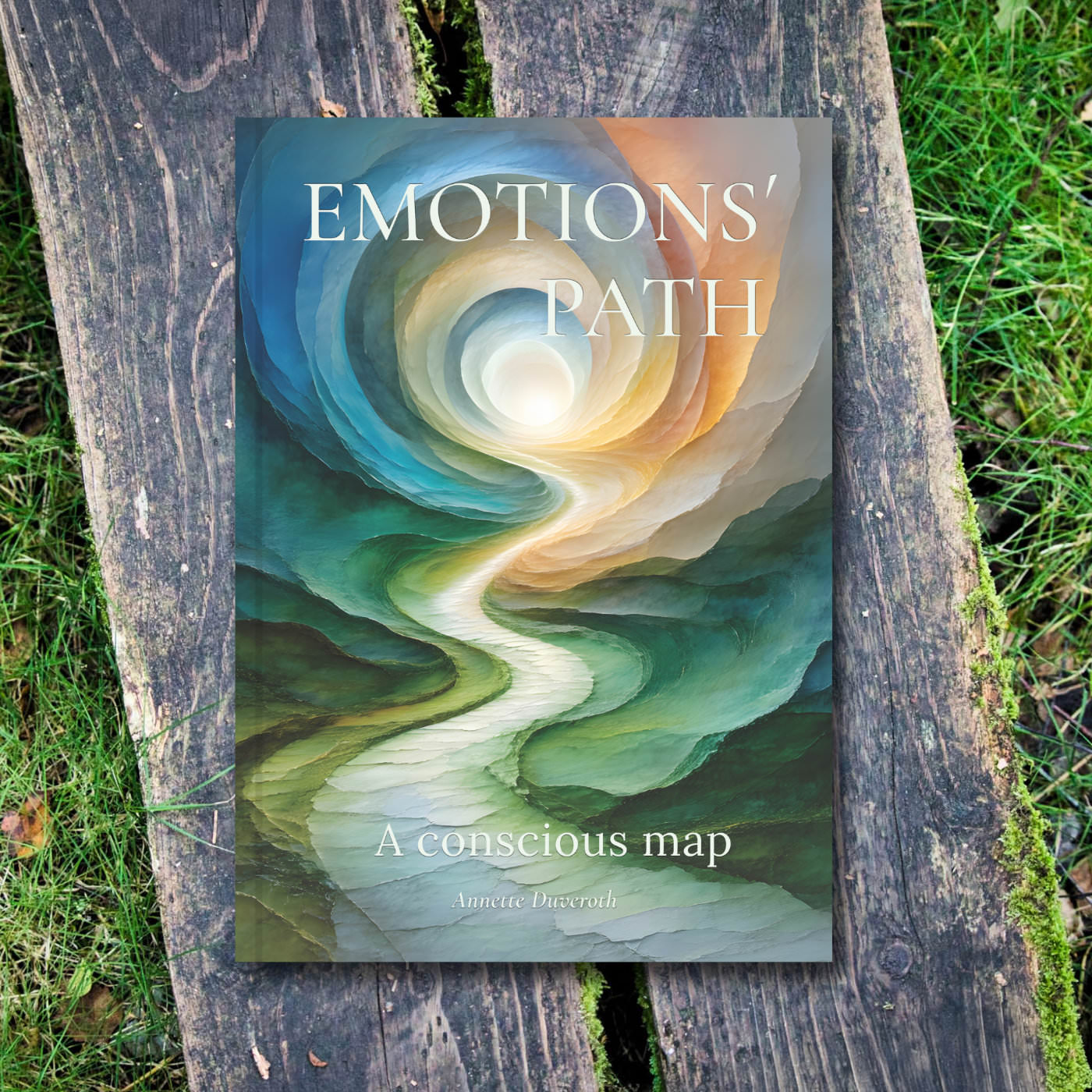/
No more excuses – Freedom replaces explanation
When the true no is hidden
The language of the conditioned no
The excuse. That gentle voice that wraps our no in something more palatable.
We don’t say we don’t want to – we say we can’t.
- I’m tired.
- Now’s not a good time.
- I have a bit of a headache.
Perhaps we’re standing there, phone in hand, about to send a message. A quiet light inside has already whispered no, but we start shaping the words into something... more socially acceptable. Not to embellish – but to protect. Because it feels softer, safer, possible in that moment.
We recognize it in ourselves. And we recognize it in others. A silent collective habit: that it often feels more acceptable to carry heaviness than to carry will. That an outer explanation lands more gently than an inner truth.
When the excuse loses its language
But what happens when we stop tuning into why we wrap our no in softness? When what once served as protection becomes habit? When the body begins to carry traces of the moments we didn’t listen inward?
This is not just a text about words. It’s an invitation into the energy behind our choices. A movement from what veils – to what liberates. From living in explanation – to resting in freedom and resonance.
We enter the psychology of the excuse, its bodily language, its cultural code – and explore how we might begin to speak, feel, choose – without hiding.
It’s not about silencing hesitation. It’s about no longer tucking truth into guilt. It’s about living – without asking for permission to be who we are. A headache that may not carry the truth of pain, a tiredness concealing something deeper. We don’t say we don’t want to – we say we can’t.
But beneath every excuse rests something more. A shield. A fear. A truth we have yet to fully stand in. And when, time and again, we wrap our no in explanations, we begin to lose touch with our inner compass. The one who knows.
We believe we need reasons to choose. But the truth of the soul requires no excuse. Only presence.
The excuse as trap, mirror, and debt spiral
The word excuse carries within it the charge of guilt’s relief. In English, it stems from the Latin excusare – to be freed from accusation, to remove responsibility. Both expressions vibrate with the same movement: to step away from ownership through explanation. It may sound gentle – and that is precisely where its power lies. Each time we excuse ourselves, in any language, we send out an energy that says: “I’m not fully standing in this.”
The excuse can offer relief. A pause, a breath, a temporary in-between. But it comes at a cost. It keeps us from the place where we own our choices – where we stand in freedom.
At the same time, every excuse carries a mirror. A trace of learned protection. When we hear ourselves say something that feels off from the truth, we are faced with a choice: to stay in the familiar – or to pause, listen, and feel the pattern. Every excuse is a gateway. An entry into what we’ve yet to meet. A chance to break the spiral.
But if we don’t take it – if we continue living inside the excuse – we slowly begin to build it into form. A life held up by the untrue. The body adapts, relationships are shaped accordingly, and reality starts to reflect what we no longer truly inhabit.
We end up in a kind of soul-debt trap – where every excuse becomes a quick loan with high interest, one we must later repay with our life force.
And so the spiral continues. To keep the excuse alive, we must keep playing its part. We set aside pieces of ourselves for the story we created to shield our tender no.
When we let the body speak through pain, exhaustion, or diagnosis, it may be because no other language can carry our no anymore. The body holds our truth when we do not. It cries out what we’ve tried to whisper away.
When diagnosis becomes a mirror
A diagnosis can feel like a relief. It gives shape to chaos. A name for what felt too vast, too diffuse, too lonely. For a moment, we might exhale – “It wasn’t just me.” But there is also a risk: to begin identifying with what we’ve been mirrored in.
“I am a rheumatic.” “I am asthmatic.” “I am allergic.” “I am autistic.” “I am diabetic.” “I have fibromyalgia.” “I get migraines.” “I am burnt out.” And at times, we start speaking of ourselves through letter codes – ADHD, ADD, OCD, ASD – as if they were our entire being, rather than a state in motion.
The story of the condition begins to become the story of the self. The diagnosis that once offered relief starts to hold us in its language. We shape our days, our relationships, our boundaries around it. The question of who we are beyond the condition begins to fade.
But every symptom also carries a code. A message from the deep. The body doesn’t only express pain – it tries to show the way home.
In a field of living energy, nothing is static. Nothing is forever. A “chronic” diagnosis is not an ending – it’s a place where movement has paused. A name for something that has become stuck, not a truth carved in stone.
What we call chronic is often a frequency caught in repetition. A pattern that has solidified. But frequency can shift. Energy moves when awareness does. That doesn’t mean the pain is imagined – it means it’s not condemned to eternity.
Living with something is not the same as being it. Freedom lies in listening to what moves – without letting it define us. In giving space to what is felt, without letting it become who we are. When we allow movement, we remember that we are always more than what we carry.
The cultural code and the fear beneath the voice
Behind every excuse lies a fear. Not always loud – but a whisper that lingers. We carry not only our own, but a collective whisper. A social echo that has taught us that a no is not enough. That we must justify, explain, make our choice acceptable to someone else’s logic.
We ask each other: “Why?” when someone says no. And within that question is an undercurrent that whispers: Convince me. Prove that your no is valid. And so the pattern is kept alive – in conversations, in daily life, in culture. A learned voice that whispers: “What happens if you speak the truth – without protection?”
But – and this is important – every time we meet a no without asking for explanation, we open a different reality. We become part of a collective exhale. When one person stops defending themselves, the next one too may rest in their choice. We don’t just free ourselves – we free each other.
It’s not truth we fear – it’s what it might cost. Loneliness. Conflict. Losing a role we’ve learned to be loved through. As long as we don’t face that fear, it shapes our choices. We create a life where we must constantly defend, soften, avoid.
To meet the fear is not to conquer it. It is to allow it to be – but not lead. To give it a place, without giving it power. And there, in presence, freedom of choice begins to bloom. Not as defiance, but as a quiet, steady yes to what is true.
Language as vibration
The words we use shape fields. Language is more than communication – it is creative force. Every sentence we speak carries a frequency into the field. Not just in what we say, but in what we truly mean – and in what we avoid saying.
When we say “I can’t handle it” but what we really mean is “I don’t want to” – we dim our inner clarity. We soften our own self-knowing and create a gap between the body’s truth and the spoken.
To begin speaking from inner resonance is to speak without defense. To say: “This doesn’t feel right for me.” Or: “My body longs for rest.” Without wrapping it. Without asking for permission. It’s about choosing words that align with our inner state. Not to amplify or to conceal – but to let the truth ring clear.
When we do this, the body begins to exhale. A language in harmony with the rhythm of the soul not only creates connection – it creates healing. It builds trust – in ourselves, in our relationships, in the field we move within.

When life begins to respond
When we stop living in excuse, life begins to reflect something else. People, circumstances, and possibilities shift. Not through effort – but as a quiet response from life.
We no longer need to defend our no. It stands, resting in its own strength. We no longer need to prove our yes. It is felt – all the way in.
Flow returns. The body softens. Encounters unfold without explanation. And there we are – not in perfection, but in truth. It’s a different kind of rest. One that doesn’t ask for permission.
But something more also happens. When we stop expecting excuses from ourselves, the need to receive them from others also softens. We no longer ask why when someone says no. We listen to the feeling. To the tone. To the field.
And so the weave shifts. Relationships become clearer. Dialogue simpler. We no longer carry each other’s guilt just to stay close. A new space opens – a kind of collective exhale – where we are free to be as we are, not who we must explain ourselves into.
And it doesn’t stop with us. Something changes in the space between. We release the expectation that others should explain their choices. We begin to honor the quiet, clean decision – even when it challenges our assumptions.
It’s a win-win in the deepest sense of the soul. The collective weight of guilt begins to lift.
We no longer carry the burden of always needing to be understood. We are given the right to simply be – and we return that right to others.
It creates relationships where honesty needs no defense. Where presence leads before performance. Where choices can unfold without drama. We become allowing fields for one another.
And maybe that’s where true flow begins. Not just in what happens to us – but in how we hold one another in clarity.
Resting in the rhythm of the soul
To live without excuse is not a principle to adopt. It is an inner grounding – a resting soul state. A foundation we stand on when we no longer compromise with our essence.
We may waver – but we waver in clarity. We may doubt – but we doubt in presence. We no longer try to convince ourselves. We listen.
What we offer the world – our gifts, our words, our touch – carries a different tone. Not because we try. But because we’ve stopped trying to be anything else.
And the body responds. The breath deepens. The nervous system softens. We no longer move through life in constant readiness – we rest into our choices. We no longer have to guard our truth – we are it.
To live without excuse is not a single step – it is a way of walking. A breath allowed to continue its motion. A movement we can always return to, each time we wish to remember who we are.
No more excuses
This is not a call for sharp edges or distance. It is an invitation into gentle contact – the same gentleness we longed for in the beginning, when we first saw how often we hide our no.
We return to where we began: to the words we speak, and the ones we don’t dare say. Now you know why. Now you know you can choose.
To choose to carry yourself in openness.
To no longer use suffering as an explanation for your choices.
To no longer hide your no in the body.
To no longer shape yourself around the fear of being rejected.
There is nothing more to wait for. You are already here.
And you are allowed to be just as you are. Without defense. Without a role. Without excuse.
Freedom begins where explanation and excuses let go.




